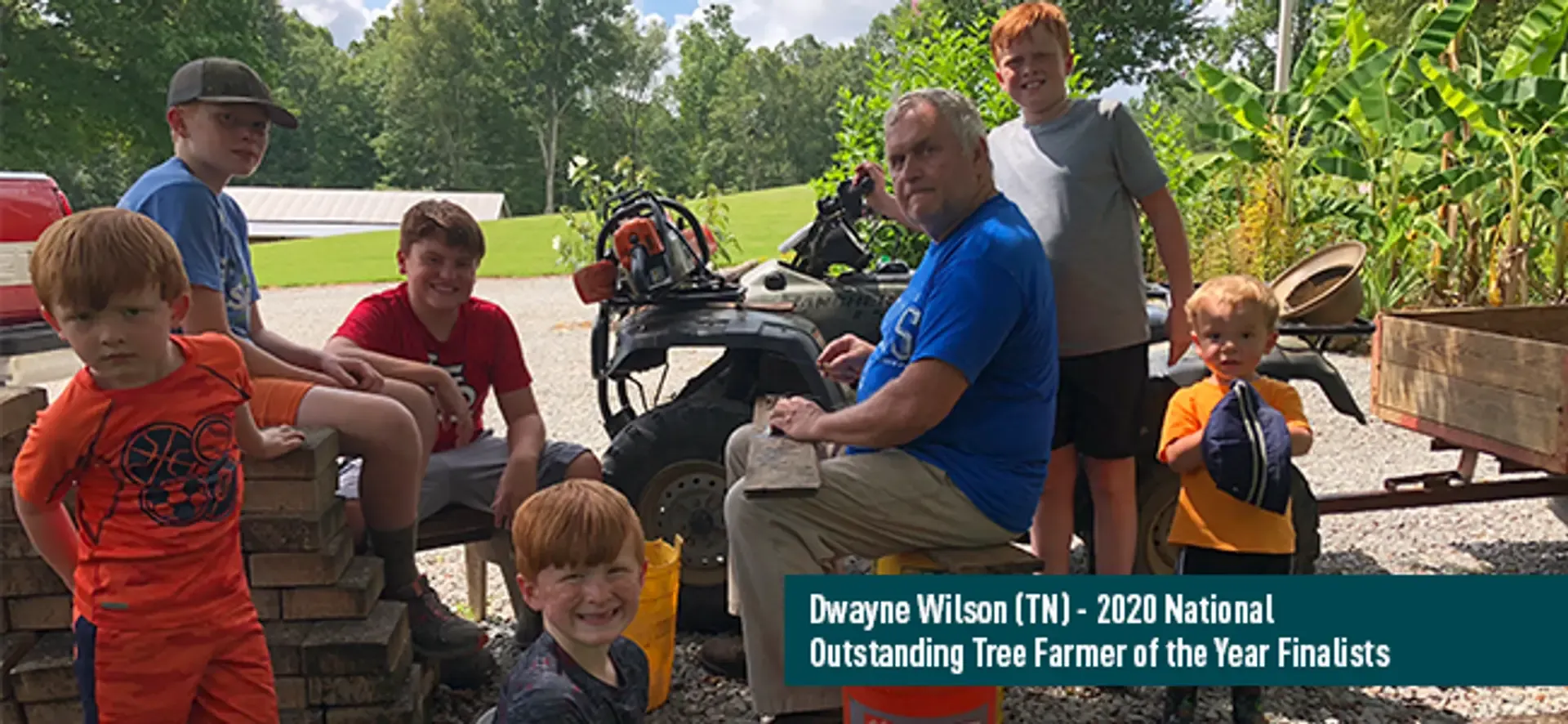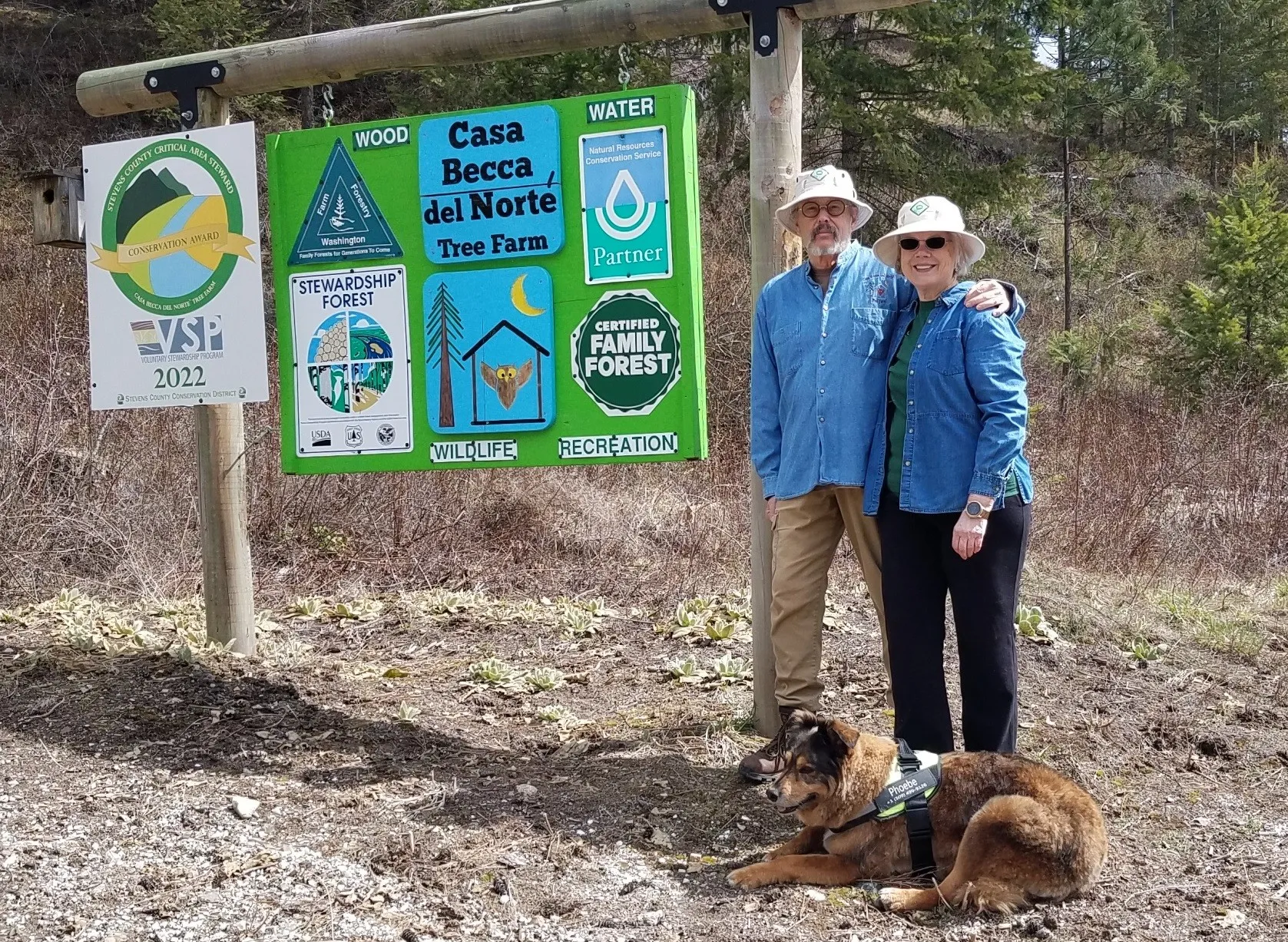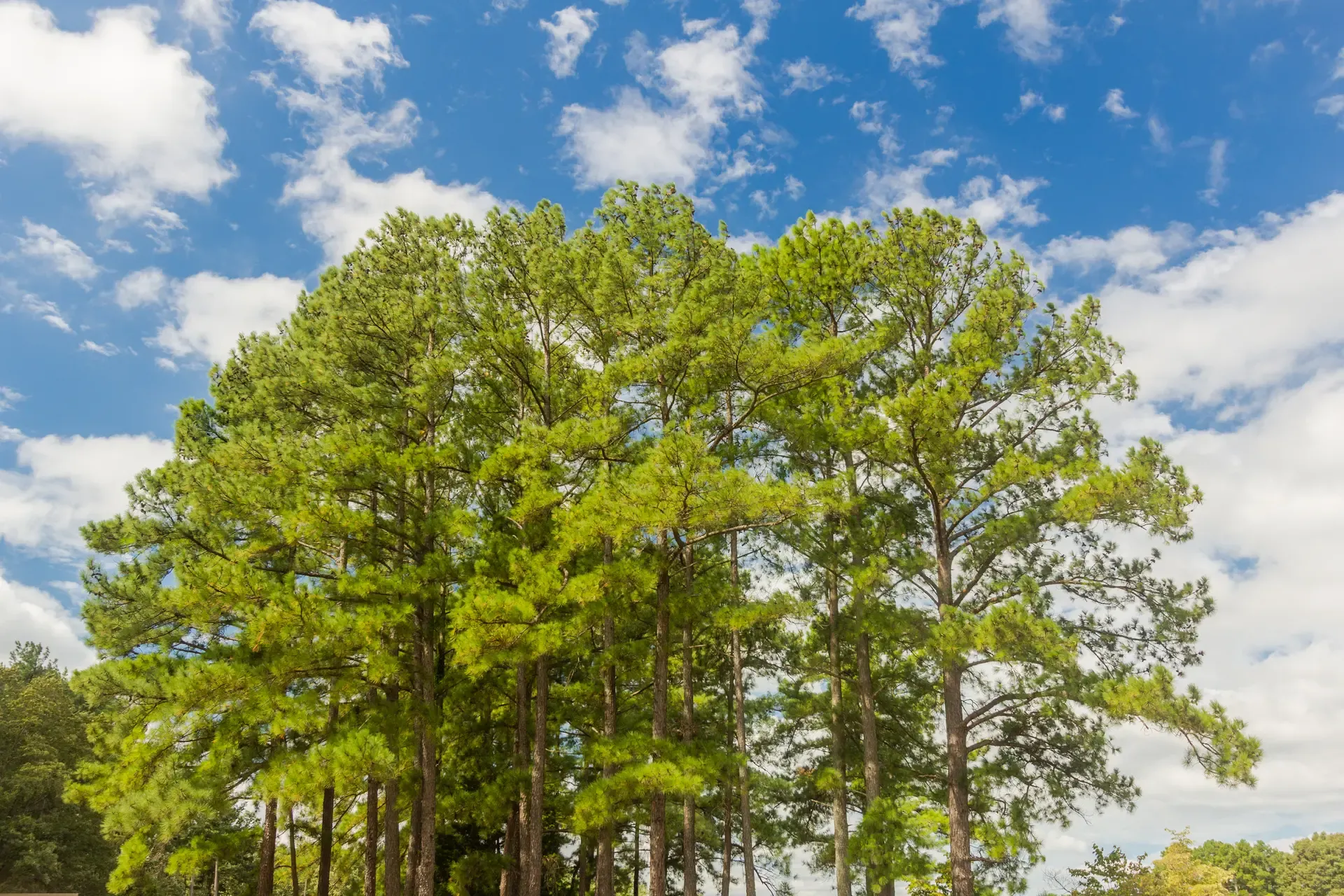Dwayne Wilson, 2020 National Outstanding Tree Farmer of the Year Finalist

Dr. Dwayne Wilson personally manages Slippery Hills Farm, in Wildersville, Tennessee, with the knowledge of a forester and the harvesting skills of a logger. The farm, totaling 405 acres (170 are ATFS certified), has been in his family since 1849, when Uriah Leonard bought the land from the state.
“Like much of the hardwood timberland in Tennessee, our farm had been high-graded for probably more than 100 years before I began managing it,” he says.
In the 1970s, Dwayne began performing timber stand improvement treatments, methodically removing undesirable species and unhealthy trees with poor form. He established hardwood plantings in areas with productive soils, and loblolly pine on the ridges and hilltops, where it thrives in less productive soil. Elsewhere, crop tree releases have added promising scattered cohorts of competitive oak regeneration. Some of these trees will grow to become codominant in the forest canopy.
“I consider my greatest conservation accomplishment to be making significant progress in changing the composition and quality of the stand of timber,” Dwayne says. “In that process, some areas that had active erosion were planted in trees, and erosion has been essentially eliminated.” To further prevent erosion and improve water quality, forest roads are located away from water, and any surface water runoff travels directly onto forest-floor vegetation.
Dwayne performs all logging aspects on his property: He fells the trees, bucks the logs, and loads them onto his log trucks with a track hoe. The pulpwood and saw logs are sold to nearby mills.
His students at Freed-Hardman University benefit from Dwayne’s hard-earned knowledge, particularly his four-step method for quality oak tree management. They often meet at Slippery Hills Farm to learn directly from professional foresters.
In his downtime, Dwayne and his family enjoy riding ATVs and hiking the trails through their forest. A cabin dating back to 1870 was relocated and is being restored. A second cabin, built by Dwayne’s son when he was in high school, serves as a hunting retreat. His grandchildren will become sixth-generation owners.
For Dwayne, stewarding Slippery Hills Farm has always been—and will continue to be—a labor of love: “My plan is to retire from teaching on the university level in May 2021 and work full-time on improving the farm.”
America’s family forests are vital for clean water and air, wildlife habitat, and sustainable wood supplies. The American Tree Farm System, the American Forest Foundation’s signature program, is the country’s largest sustainable woodland program, with a network of more than 70,000 family forest owners managing 19 million acres of forestland.
Related Articles

November 20, 2025
New Film Showcases Carbon Project’s Impact on Family Landowners and Nature
The American Forest Foundation (AFF), a national organization committed to empowering family forest owners to create meaningful conservation impact, announced today the release of a new film that tells the story of the Family Forest Carbon Program (FFCP) and its impact on people and the planet.

November 6, 2025
Meet the 2025 Outstanding Tree Farmers of the Western Region – Lynn and Becky Miner
Lynn and Becky Miner’s story is one of vision, perseverance, and transformation. When they first purchased their 100-acre property near Chewelah, Washington in 1992, it was far from the thriving, diverse forest it is today. They have poured their energy into turning “Casa Becca del Norte” (Becky’s House in the North) into a model Tree Farm, earning the recognition as 2025’s Outstanding Tree Farmers of the western region.

June 3, 2025
Why Wildlife Loves Loblolly—And How These Pines Can Benefit Your Land
A quiet stretch of pine trees can offer more than just scenery—it can provide vital habitat for wildlife across every season. Loblolly pine, the most common native tree species in the Southeast, plays a particularly important role in creating habitat for a wide variety of game and non-game species, from wild turkeys and rabbits to songbirds and squirrels.